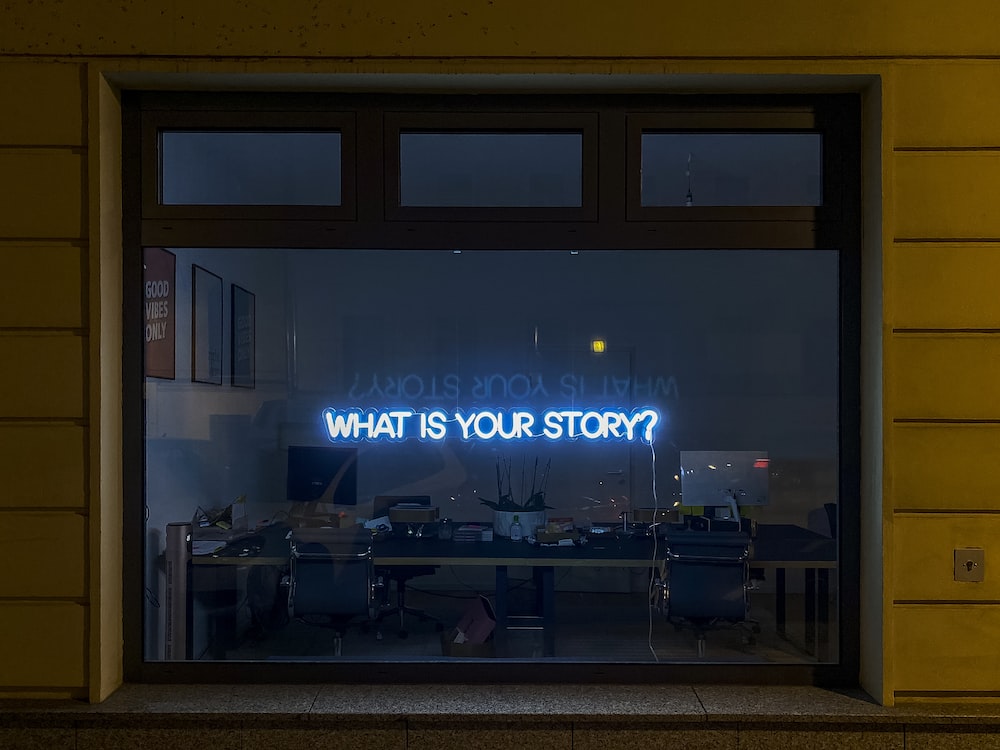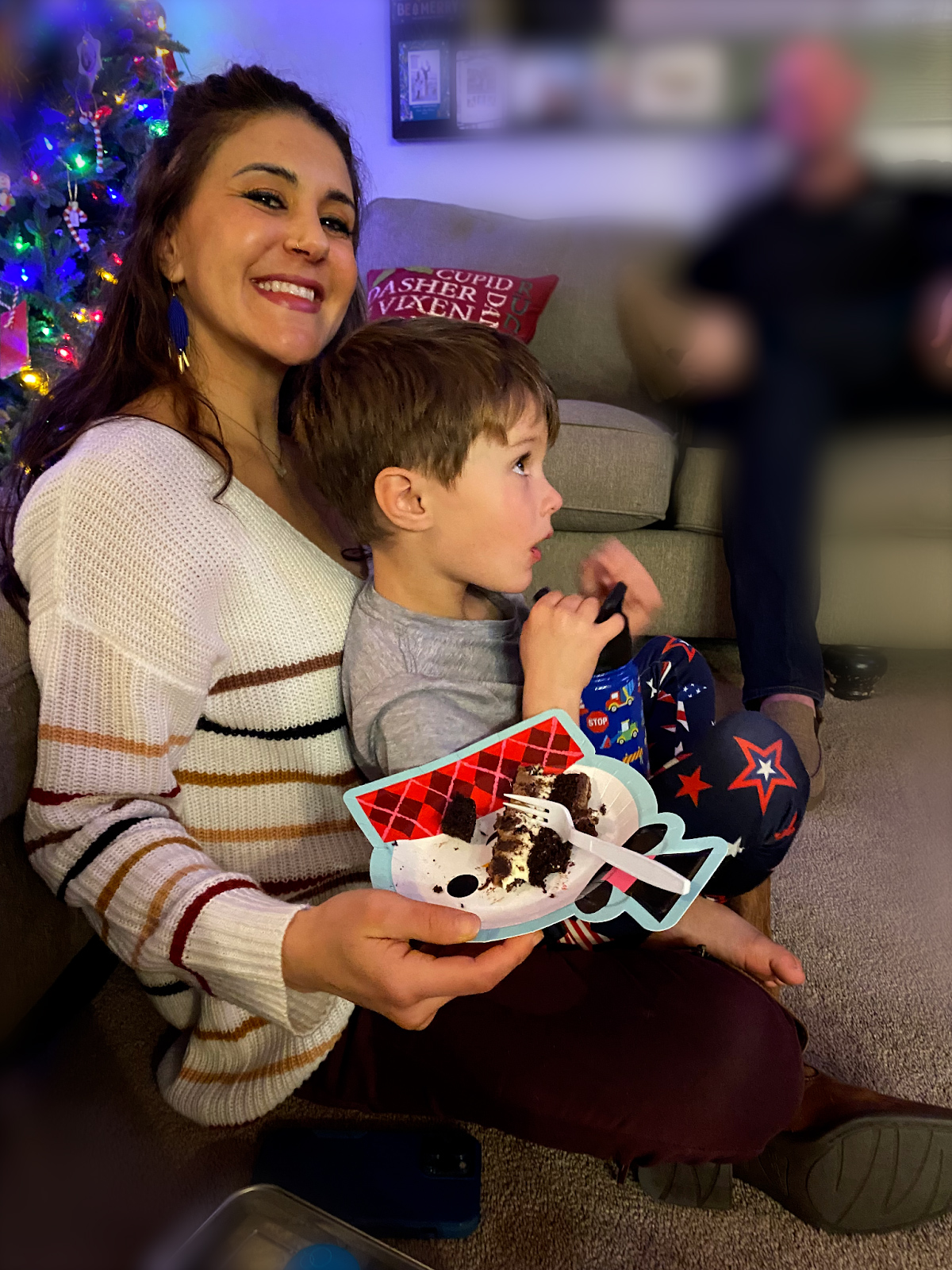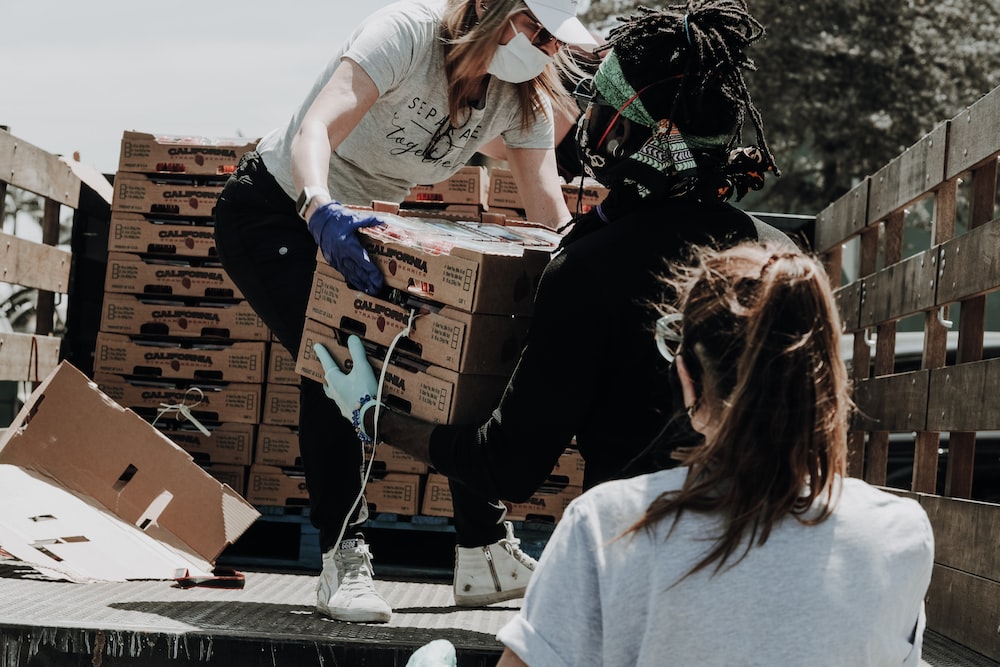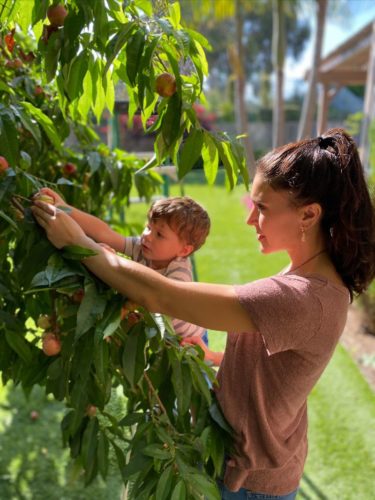As the principles of Intuitive Eating are very rooted in Psychology, I would like to bring up our precious mind health this holiday season, and share some things that I have picked up along the way that may support you and others through this time.

It’s totally fine to not be merry or happy during the holidays: In fact, it’s quite common. There are lots of holiday triggers and trauma which can ignite self-destructive behaviors like addiction, or over or under-consuming food. A NAMI study showed that 64% of people with mental illness report that holidays make their conditions worse. If you’re living with a mental health condition, holiday stress can contribute to worsening symptoms. Examples: in schizophrenia, it can encourage hallucinations and delusions; in bipolar disorder, it can trigger episodes of both mania and depression.

Be inclusive: As a person who is Jewish, I have often felt very isolated and forgotten during Christmas. And deeper down in my core I feel fear. Jewish people have gone through persecution for being different and when we aren’t noticed, that feels scary! Ancestral trauma is alive and well in me.
People walk around saying “Merry Christmas!” and while that’s meant to be kind, it’s excluding many diverse populations. We live here together – let’s honor all the beautiful differences we have. “Happy Holidays” is a lot more kind and affirming when you don’t know someone.

Question traditions: When we have to all sit at the table with small children, eat all the food, be touched and hugged, asked uncomfortable questions, expected to have all the family stay in our home… etc. I can go on. I have experienced and heard it all. At what cost? You are left with discomfort, disrespect, betrayal of self, anxiety, and exhaustion. Does this solidify the importance of your core values? Probably not. We repeat so many “traditions” that don’t serve us. Question each plan you make. Is this supporting your well-being? What would be most joyful and meaningful for you? You are allowed to make this life what you want it to be.

Follow through with consequences when your boundaries are disrespected: When you finally get to a good place of making important boundaries for yourself, do you have the follow-through if they aren’t supported? When people don’t respect your boundaries, it’s not about you. It’s about how they feel about themselves which is outside of you. Try not to take it personally (trust me I do!). It’s your role to protect yourself (and your children) and stick to the outcome you stated. “If you cannot honor my family rule to not hug my child when they don’t want you to, and also talk to me about my weight and partner choices, we will need to leave.” Something like that. You all have your own hands-off topics or behaviors for yourself and for your children. Provide the consequence and FOLLOW THROUGH. Be the change you wish to see.

Daily self-care practices: Even though there are so many new events and buttoning up with work and gifts to get, what keeps us mentally and physically stable and harmonious is our daily care for this precious vessel we are in: Moving your body, getting outside, consuming plant foods, getting adequate water, having awareness and attunement to our emotions and thoughts, mindfulness, quality sleep, and meaningful connections (with humans and/or animals!). Do you touch upon these practices? If so, how often? Do you abandon yourself during busy times? Coping strategies for mental health are just as critical as brushing your teeth daily and sleeping.

Don’t avoid your emotions. Instead, identify and validate them.
Give yourself compassion. Notice if you are being hard on yourself or blaming yourself, and instead, be compassionate to your suffering. Watch those cognitive distortions! If you’re not sure what those are, check out my blog on the subject. Remind yourself that emotions are temporary (even though they may feel like they could last forever).

Your favorite foods can be eaten all year. Remember your hunger and fullness cues, that you can have all the food all the time, all year forever and ever (unless you are food insecure, then this does not pertain to you). What if you told yourself I can eat this favorite [insert favorite holiday food here] every meal, 365 days a year? Would you scarf it down until you felt sick? Probably not. You would mindfully eat it and stop when you are full. Notice my 5-year-old in this picture. I’m showing you a chocolate cake here (he loves chocolate) that he is finished with. I don’t give him limits on sweet foods. He stopped because he felt his body signals, not because of an outside rule. He easily stopped. What if I told you that can be intrinsically amplified in you? It was always there – it’s been beaten down by food rules.

Good deeds. The act of volunteering can provide a great source of comfort. By helping people and/or animals who need support, you can also feel less lonely or isolated and more connected to your community and the Earth. You can find out if there is a safe way to volunteer in your community – here are some resources for ideas:
https://www.doinggoodtogether.org/holiday-volunteering
https://www.thesprucepets.com/volunteer-local-shelters-holiday-season-5210195

Talking about suicide: Death by suicide is a more sensitive way of explaining when someone takes their life versus the word “suicidal.” Sort of like calling someone a “diabetic”. You are not your disease; you are a person with the disease. Normalize the word suicide, and saying this word out loud around any age is not a risk factor for suicide.
Find support. Whether it’s with friends, family, a counselor, or a support group, airing out and talking can be lifesaving.
Consider attending a free support group provided by your local NAMI California affiliate. If you or someone you love is experiencing a crisis, you can call the National Suicide Prevention Line at 1-800-273-8255; use the Crisis Text Line by texting NAMI to 741-741 to connect with a trained crisis counselor for free, 24/7 crisis support via text message; or call the NAMI Helpline at 1-800-950-NAMI (6264) M–F, 7 a.m.–3 p.m. PT for free mental health info, referrals, and support.

Keep up or seek therapy. If you’re feeling overwhelmed, it may be time to share with your mental health professional. They can help you pinpoint specific events that trigger you and help you create an action plan to change them. If you’re already seeing a therapist, keep it up.
I hope this list will provide armor for the holiday season and every day thereafter. This is not an exhaustive list, of course, just some topic areas I think are important.
I am wishing you well from the inside out,
Miriam Jirari MPH, RDN, CPT, Intuitive Eating Counselor
Studio SWEAT Dietitian

Resources:










Comments - 0